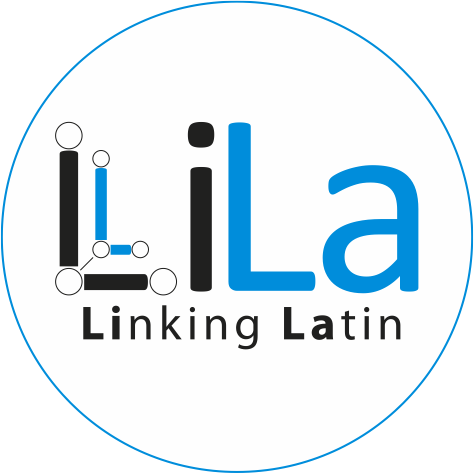
The LASLA corpus is now linked to LiLa
We are happy to inform you that, thanks to a collaboration between the LiLa team at Università Cattolica del Sacro Cuore in Milan (Italy) and Prof. Margherita Fantoli (KU Leuven, Belgium), the entire corpus of Latin texts developed by the LASLA laboratory (http://web.philo.ulg.ac.be/lasla/) is now linked to the Knowledge Base of interoperable linguistic resources for Latin LiLa (https://lila-erc.eu).
The LASLA corpus contains a significant part of Classical Latin literature, lemmatised and morphologically annotated by qualified collaborators over the last sixty years.
Linking to LiLa allows the 131 Latin texts of the LASLA corpus (about 1.7 million words) to interact with the other textual and lexical resources currently linked to LiLa, including the Index Thomisticus Treebank, the UDante treebank, the sentiment lexicon LatinAffectus, the morphological-derivational lexicon Word Formation Latin, two etymological lexicons, a portion of the Latin WordNet and a lexicon of valency.
LiLa is based on the principles of the Linked Data paradigm, according to which the relationships between data are recorded in triples (subject – property – object). All the triples of the LASLA corpus linked to LiLa are available in Turtle format from:
https://zenodo.org/record/5961378#.YfwJS_XMKX1
https://github.com/CIRCSE/LASLA
At the moment, the LiLa Knowledge Base consists of approximately 30 million triples.
The Latin corpus of LASLA in LiLa can be found at this URL: https://lila-erc.eu/data/corpora/Lasla/id/corpus
A search interface is available at https://lila-erc.eu/query/ to browse the lexical basis of LiLa.
At https://lila-erc.eu/sparql/ it is possible to write and launch queries in SPARQL on the LiLa Knowledge Base. Some precompiled queries are also available. Try them!
By connecting to LiLa, the team at the Laboratoire d’Analyse Statistique des Langues Anciennes (LASLA) hope to significantly enrich the potential of analysis and research of the data created so far. Furthermore, we wish this work will encourage free sharing of high-quality data, essential for the advancement of research in our field.
We trust that LiLa meets the needs of the scientific community and that those of you who develop or manage linguistic resources for Latin will endeavour to link them to its Knowledge Base, thus making them interoperable with the existing ones: the more we are, the better the potentials! We will be happy to help you do it.
With best regards,
The LiLa and LASLA teams
